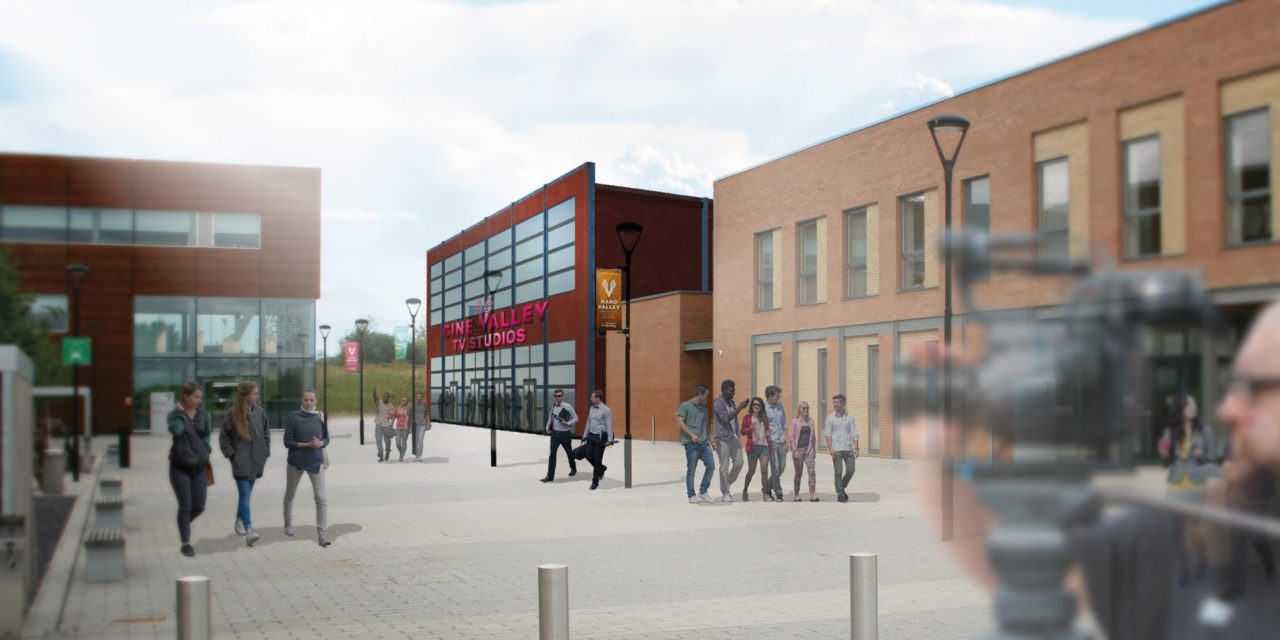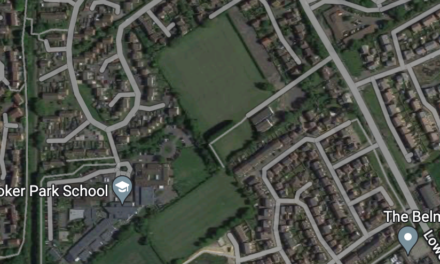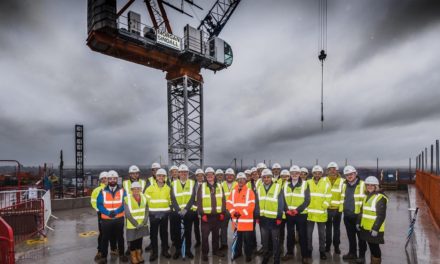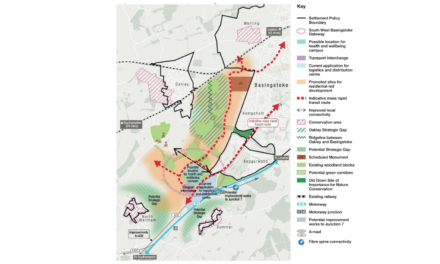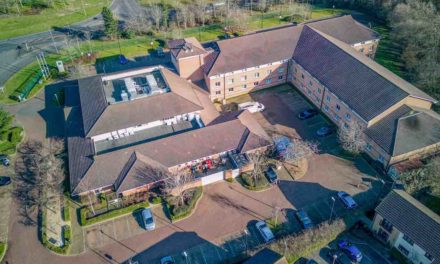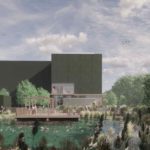Reading has the best geography in the world for filmmakers according to the team behind Cine Valley, the proposed film and television village at Thames Valley Science Park.
Earlier this month the University of Reading announced a new television studio will be built at Cine Valley, part of Thames Valley Science Park, the latest announcement at what could become one of the most significant TV and film locations in the industry.
Subject to Wokingham Borough Council granting planning consent, the studio would be the first phase of the wider Cine Valley project, itself part of a major expansion on the park at Shinfield, close to the border with Reading. Depending on the type of construction, details of which are being discussed with end users, it could be in use by early 2021.
Darren Browne, commercial director for the university, told Thames Tap demand for the development had been driven by a ‘perfect storm’ created through:
- Increased demand for content (partly driven by Covid-19 and lockdown) while fewer productions could be made
- A shortage of available ‘sound stages’, (studio spaces fully insulated for sound)
- The local talent pool
He added: “In Reading we happen to be sitting in the best geography in the world for filmmakers.”
Additional services being created by media giants and streaming services such as Apple, Amazon, Google, Netflix, Disney and HBO, are creating a new demand.
He said proximity to existing studios at Pinewood and Shepperton, Heathrow airport, central London and the M4 make the Cine Valley unlike anywhere else. The proposed Blackhall studios, announced in February, would be part of a wider ‘eco-system’.
More than 1,500 people would work at Cine Valley with around 3,000 additional new jobs involved in the supply chain. Mr Browne said: “We are creating a whole eco-system and it will benefit the local community in terms of jobs.
“The Blackhall deals could bring inward investment to the UK of as much as £500 million a year, which might otherwise go elsewhere in the world. It’s really important because filmmakers like the convenience, so that if you are working on a film you can fly to Heathrow, and half an hour later you’re at Thames Valley Science Park.
“If you have a world-famous actor staying at the Dorchester or the Ritz, they are 45 minutes to an hour down the motorway – although environmental sustainability is central to what we are doing, so we would prefer it if they took the train!”
The pipeline of talent will be key to Cine Valley. Mr Browne said tie-ups with schools and colleges would eventually be needed to find skills ranging from ‘carpenter to director and everything in between’. The university already has a Department of Film, Theatre & Television, combining practical and theoretical study of filmmaking and the creative arts.
Mr Browne said: “What we are looking at is, in effect, a ‘digital catapult’ for creative industries. It could put the Thames Valley in the forefront of film and TV innovation.”
That, he said, meant many opportunities in an industry where every pound invested in film tax credits produces £8 in value to the UK. He went on: “The university already excels at producing graduates who are employable, and we know they are more employable with practical skills as well as a rigorous education, thus providing education and opportunity.
“Another core principle behind Cine Valley is the need for film and TV to make a step-change in employing and creating content by a more diverse community, particularly with people from a BAME background. We are committed to helping make that happen.”
Mr Browne said he is keen to keep the community of Shinfield informed and involved in developments at TVSP and believes Cine Valley offers a more exciting alternative to what could have been a much more densely populated office park, home to around 5,000 jobs.
Mr Browne said: “When you think what other business parks look like, they are often mainly offices operating from 9am– 5pm (pre-Covid). Film studios are much less densely populated, so provide a much lighter touch on the community.
“Running a film studio is not 9am- 5pm because of the nature of it.
“Initially it (the original plan for the business park) was expected to take 5,000 jobs. By only having 1,500 people, coming in at different times, means it is a lighter touch upon everyone in the community. This will feel very different to traditional business parks such as Winnersh Triangle or Green Park.”
Shorter building times for studio spaces compared to offices would, he said, mean less disruption during the construction phase.
He stressed that the university is keen to be sympathetic to the needs of the local community, in an area where large numbers of new homes are already under construction.
He added: “So far we have had very positive feedback from the community, not without questions – and hard questions. The local community in Shinfield have had their fair share of construction over the recent past, so we are mindful of our need to engage, listen and consult.”
Cine Valley is the most significant part of a new direction for TVSP. As well as film and TV, this will include a focus on heritage and the arts, following completion of the new British Museum archaeological research centre building, currently under construction. Other focuses could be based around innovation and technology, and life sciences and health.
Image: CGI by Barton Willmore. Post production by Voyage Brand & Communication
© Thames Tap No 222 (powered by ukpropertyforums.com).
Please rate this article out of five stars below. You can comment too, using the form at the bottom of the page.

